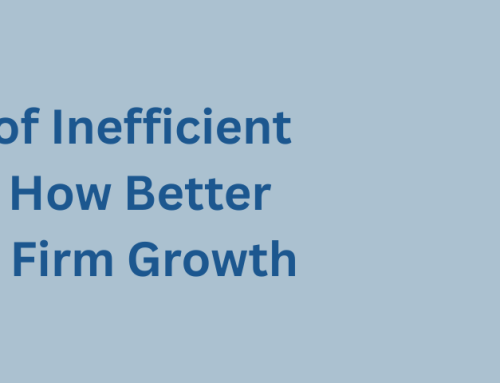How To Avoid Burnout Within Your Law Firm

While burnout is not a problem exclusive to the legal industry, it is particularly prominent within this realm. In fact, a recent study found that “92% of lawyers have experienced stress or burnout due to their job, with 25% experiencing it daily.”
While there are many potential causes for this, such as an increase in workload, performance-related anxiety, and competitive working environments, law firm owners must be able to take proactive steps to prevent burnout within their teams. Otherwise, both their employees and their business as a whole will suffer.
What is burnout?
Burnout is primarily a form of exhaustion that is typically caused by being overworked or overwhelmed. When a person experiences burnout, they are no longer able to work to their full capacity due to the high levels of stress and exhaustion they face on a daily basis. As such, it nearly always impacts workplace performance.
What are the signs of burnout in the workplace?
According to a recent report, nearly two-thirds of lawyers have experienced burnout in the workplace, meaning it is something that employers need to be aware of moving forward. For example, you must be able to recognize the common symptoms of workplace burnout, such as:
- Signs of exhaustion. Employees may showcase signs of exhaustion at work; for example, they may appear to be lacking in energy or complain about poor sleeping habits/patterns.
- Reduced enthusiasm. Many of those experiencing burnout will lose their enthusiasm for their work.
- Lowered productivity. Burnout is often associated with a drop in productivity rates. For example, employees may take longer to complete certain tasks or may begin missing deadlines.
- Increased absenteeism. Various studies have linked burnout to increased unplanned absenteeism in the workplace. This puts remaining employees under increased pressure to pick up the slack left by absent peers.
- Lowered self-confidence. While burnout is the product of overworking and not underachieving, many employees feel as though they are to blame for feeling this way. As a result, their confidence levels are likely to drop, and they may begin to experience imposter syndrome.
- High turnover rates. Employees reaching their breaking points with burnout may be more inclined to seek out employment elsewhere, resulting in high turnover rates. This could also make it difficult to hire top talent in the future.
How to avoid burnout in your law firm.
Fortunately, there are many ways in which you can work to avoid burnout in your law firm. For example, you can:
- Carefully monitor employee workloads. Employers should make a real effort to ensure that employees’ workloads are manageable and that they are not expected to work beyond their capacity for extended periods, even during busier months.
- Encourage them to set healthy boundaries. Employers should encourage employees to set healthy boundaries within the workplace by promoting work-life balance.
- Create a safe space for open communication. Employers should make it as easy as possible for employees to voice their concerns, particularly those relating to their overall well-being. This allows you to take action and make meaningful changes moving forward instead of letting the issue worsen.
- Invest in employee well-being. Investing in employee well-being is also crucial when it comes to preventing burnout. For example, you could provide them with access to therapeutic support services.
In short, there are many ways to protect your employees from burnout—even in an industry as competitive as law. More often than not, this can be achieved by finding ways to lower their workload so they can dedicate 100% of their time and energy to the tasks you hired them for.
At FinOp Group, we’re on hand to take on any legal accounting work, from bookkeeping to tax planning. Get in touch today to find out more!







